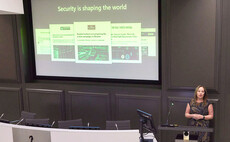This week's stop stories, as judged by Computing readers
In a week when much of the focus was on Guy Fawkes' historic attempts to blow up the Houses of Parliament, it's strangely appropriate that government - or at least its IT systems - was a key focal ...
To continue reading this article...
Join Computing
- Unlimited access to real-time news, analysis and opinion from the technology industry
- Receive important and breaking news in our daily newsletter
- Be the first to hear about our events and awards programmes
- Join live member only interviews with IT leaders at the ‘IT Lounge’; your chance to ask your burning tech questions and have them answered
- Access to the Computing Delta hub providing market intelligence and research
- Receive our members-only newsletter with exclusive opinion pieces from senior IT Leaders






















